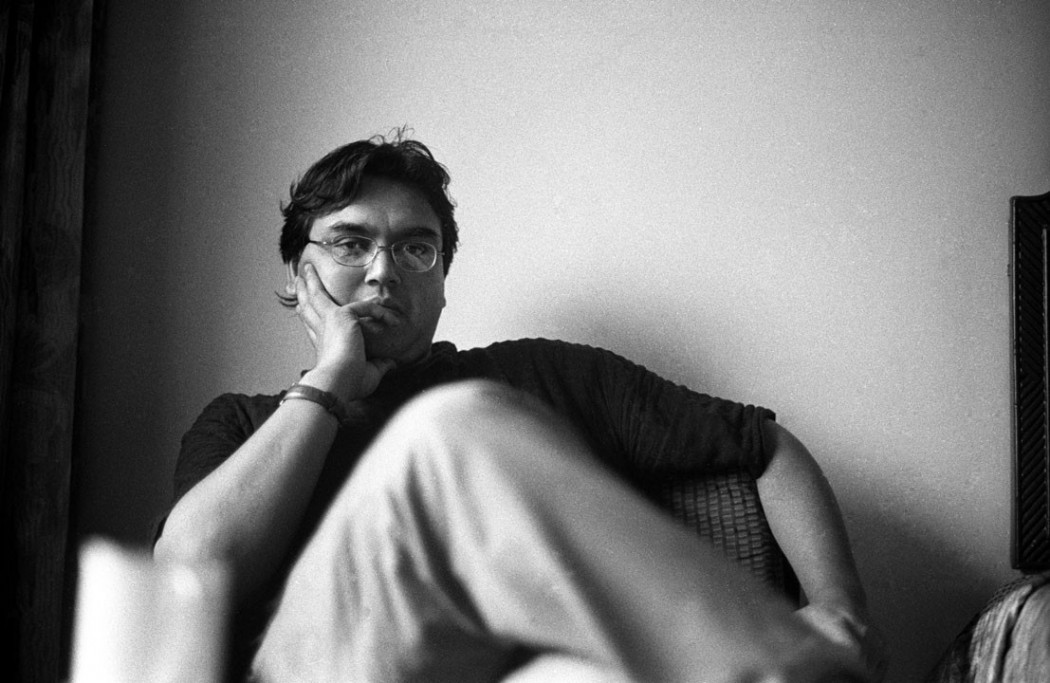Art in its purest form never reveals all.
With this line, Sudeep Sen, in his poem ‘Bharatanatyam Dancer‘ offers an unintentional insight to his own work, elusive and scintillating as it is. The English-language Indian writer, with his soft and gentle narrative, writes poetry that is so quiet yet moving that it’ll weasel its way into your heart before you can say ‘Mediterranean‘.
As a poet, Sen has a deep love for oxymorons and thus calling his works simple and complex at the same time doesn’t feel odd at all. His use of language is unadorned but holds several subtle layers that hide as much as they reveal with each reading. Clever linguistic play allows each of Sen’s poems to be unique and lovely, be it the steady beat in ‘Bharatanatyam Dancer‘ that mirrors the actual tempo of the dance or the visually stunning flow of ‘Single Malt‘, with its stuttering enjambment mimicking the way whiskey streams down the side of a crystal glass. The caress of liquid on glass is not only visually pleasant but almost tangible in the slim poem.
The Inlaks scholar thus always pays attention to structure and what he calls ‘the architecture of the poem’. However, Sen does not abuse his poetic license and is particular about staying logical. He builds his ideas stanza by stanza, slowly arriving at his conclusion, which he never leaves vague. Reading his poems is like spooning into a warm chocolate fondant, since they release their delights and secrets once you get through the first layer(s). His poems always carry the promise of a gooey centre!
Correct grammar and syntax is also extremely important to Sudeep Sen, as it probably is for most writers. He has, moreover, developed his own punctuation, reminiscent of the styles E. E. Cummings and Emily Dickinson employ. As aware of his Oxford commas and ampersands as it is possible to be, Sen explores this passion for punctuation in his poem ‘Grammar‘. The poem also has a musical lilt, and there are elements of dance as a major influence in nearly all of Sen’s poems. The aural aspect is thus strong in his works and poetry readings with him are a breathtaking experience, as Kaafiya’s Poetry Festival at India Habitat Centre on Sunday (11th October) was.
In an exclusive reading that Sen gave for the English department at Gargi College, we had the chance to spend some time with him, sharing stories and discussing his views on literature, the Indian audience and more. He expressed here his frustration with India being quite slow on the uptake and only appreciating poets when they’re 90 or dead. He has, in fact, received a more enthusiastic response from Western universities, having delivered talks in dozens of colleges in Europe and the US. We must, he feels, offer our young writers more support in order for the industry to grow. Another issue he has faced in India is with the incessant questioning on his decision to write in English. He is angered when asked about this apparent ‘rejection’ of Indian culture, and says,
English is, to me, very much an Indian language.
Growing up learning the language from Indians and in an intrinsically Indian way has made it, he feels, deeply-ingrained in our culture. He considers those that question his choice of language to be “illiterate” and inept, as his poems are clear in their Indian background and rooting. Further, Sen discusses his distaste for technical terms and labels, claiming not to understand things like “post-colonialism”, especially when attached to him. He does not consider himself a postcolonial writer at all, especially since there are no related themes that he draws from in his wide purview. He also dislikes those ‘scholars’ that throw around big words without gripping their meaning, and that have far more opinions on less texts actually read.
When asked about his writing process, he tells us he finds it necessary to get all his material on paper, without considering the readers at all, since he feels that that would restrict the creative flow. The reader is only considered later, when thinking about publishing, as the works must be comprehensible to the audience he is aiming for, who is not necessarily from a literary or academic background. He also does not shy away from venturing into the erotic side in his poetry, a subject that people are largely still hesitant about in India. In his ‘Sixteen Movements on Erotica‘, with poems like ‘Climax‘ and ‘Desire‘, Sen is able to strike the right balance between suggestive and excessive, something he admits to be quite difficult.
Sen is a poet “fascinated not just by language but by the possibilities of language” (Scotland on Sunday). Having turned his passion into a profession, Sudeep Sen is a true inspiration and is one of the chief contributors as well as activists of India’s literary scene today.
Hungry for more poetic fondant? Be sure to check out our favourite pieces by this poet, Banyan and Jacket on a Chair.












